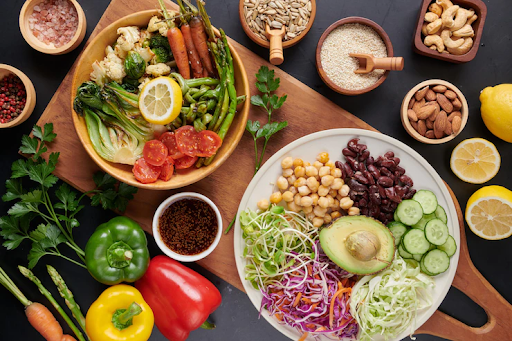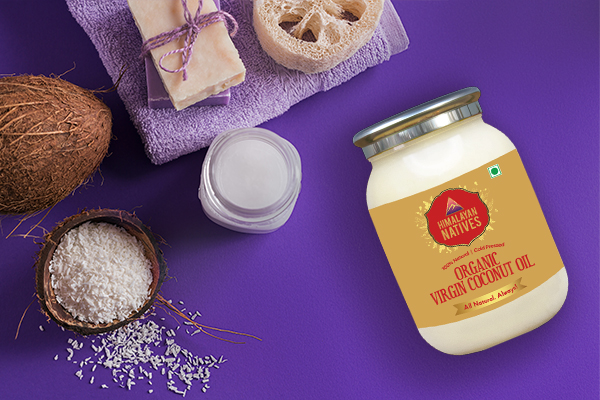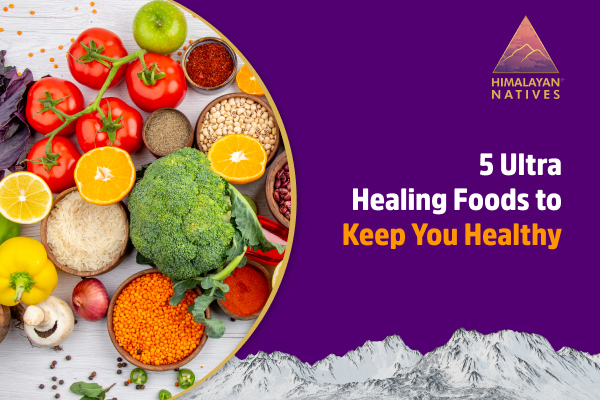
You ought to be into Yoga, fitness, or at least eating healthy if you are reading this.
And if you are not, you might just become one after knowing how simple and effective a proper diet and exercise schedule can prove to be. A proper diet should have the necessary nutrition. Yoga is the union of health and wellness and this year's theme, 'Yoga for Humanity,' is the appropriate way to celebrate what brings humanity inner serenity and quiet.

The benefits of yoga serve multiple purposes, you can use yoga in exercises or you can use it as therapies. It has been a solid pillar for fitness and healthy life right from the times of ancient India. It is a group of physical, mental, and spiritual practices with the aim of body and mind control for a disciplined healthy lifestyle. Let us take a short dive into how you can reap the best of yoga and nutritional diet benefits. And how to put them together in your day-to-day life in order to reduce weight and stay fit, this International Yoga Day.
The Practise Of Yoga
Yoga is so much more than just a set of stretching and bending exercises. It is a spiritual belief and a lifestyle promoting healthy living. So, basically, there are two aspects of yoga, one being philosophy which says that mind, body, and soul are all a whole entity and cannot be separated. Just like Buddhism, it also believes that spiritual ignorance asks for suffering and loops us binding in the cycle of rebirth (The Wheel of Samsara).

Yoga is the prominence of the mind to realise one’s true self. In Yoga, a state of pure awareness is the ultimate goal that one wishes to achieve, also called Moksha.
Now to answer why one should engage in regular yoga practices, it is pretty simple and obvious. Practising yoga helps an individual feel good, makes them stronger, healthier, and happier, and builds a flexible body & mind. It also teaches us to be patient, have humility, and ability to better understand physical & emotional balances in life. However, body and mind exercises when combined with a daily healthy diet can be proven to be more efficient. So let us look at how to precisely achieve this.
Yoga And Natural Food? A Healthy Date You Should Not Miss!
No wonder why yoga practitioners choose a vegetarian or vegan diet. The main reason to follow a healthy pure nutrition diet is that it supports healing, balance, and inner peace. Many people confuse a normal healthy diet with a Yogic diet, but you do not need to necessarily follow the strict diet routine a Yogic diet demands. To help you out with exactly the same, mentioned below is a curated list of helpful dietary tips and meal plans to make it easy for you to transition to a diet that’s more befitting for your yoga practice.
To incorporate further food suggestions in your diet, try adding simpler ones first. Make sure this addition does not affect your daily lifestyle and eating habits. Once you figure out this balance, try including more nutritional food in your diet.

- Eat Fresh Natural foods: Add a bunch of whole, fresh, seasonal food and nutrition to your diet. Organic, traditionally grown foods are closest to their natural state. You can try adding Natural Ghee, Raw Honey, and Soaked Chia seeds as natural sweeteners and healthy cooking oil alternatives.
- Eat at regular intervals: It is crucial to allow at least three hours between your meals. After your first meal of the day, make sure to follow this hour gap routine in eating. This aids your system in fully digesting your last meal. When you eat at regular intervals, your meals taste better, and there’s less chance of you overeating.
- Biggest meal? Lunch!: Our human body and its digestive system are designed to consume and digest most food at midday. Raw veggies and difficult-to-digest proteins are easily digested if consumed during lunchtime.
- Avoid chemicals and stimulants: Chemical substances are to be found everywhere, in air, water, or in our food too. So to keep your body and mind pure, avoid processed foods, and artificial sweeteners and move towards more natural and unprocessed food products.
- Eat two hours prior Yoga/Sleep: A heavy stomach can be a bit of a concern if you are doing yoga asanas or going to sleep. The best way to avoid it is by eating small and light meals at least two hours before any such activity involving workouts or rest.
- Dinner? Have it cooked!: As we all know, cooked food is easier to digest than raw food, and why it is highly recommended to have cooked food for your dinner. This in turn also helps in a satisfactory rest or sleep.
- Eat with mindfulness and a positive attitude: Last but not the least, your attitude towards your food defines your attitude towards yourself. Be kind and have your food with gratitude and have it as you love it. This helps in understanding what, when, and how much food and nutrition your body needs. All of this can lead to a healthier and happier you.

Now, for the morning people who wish to start their day practising Yoga should consume bananas and other fruits like berries at least 45 minutes before their session. Consume quick protein-rich foods such as yogurt and dried fruits, oats, seeds, eggs, and protein shakes to get your body and mind pumping. And those planning to practice yoga in the evening should have small snacks an hour before the yoga session.
Have some water 30 minutes after your Yoga session. This will recover lost electrolytes during yoga, which can induce cramping in the body. After your yoga session, have a purely nutritious dinner but be mindful of the prerequisites.
Summary: Moving towards a cherished goal of balanced diet and yoga asanas, it is very important for any individual to find that balanced equation of daily natural healthy foods and exercises. Increase consumption of carbs, plant protein, fibre, vitamins, and all the essential nutrients. And it is not that difficult to reap all of those beneficial nutrients that we should get including veggies, fruits, dry fruits & nuts, seeds, pulses, natural sweeteners, and pure ghee to our regular healthy diet.
So it seems like you have made it this far, then why not check out another Himalayan Natives blog, which will help you understand a healthy diet some more.
Top Sources Of Healthy Protein In A Vegan Diet!
Also, binge-watch our Instagram for more exciting nutrition facts!
 HELPFUL0 people found it helpful
HELPFUL0 people found it helpful
Related Blogs
Subscribe to Our Blogs
and never miss on the latest update!

















